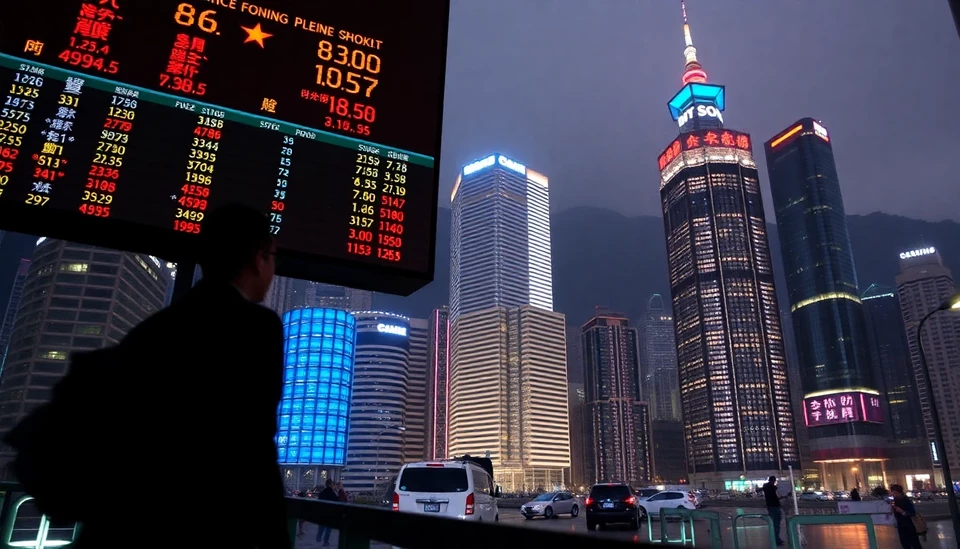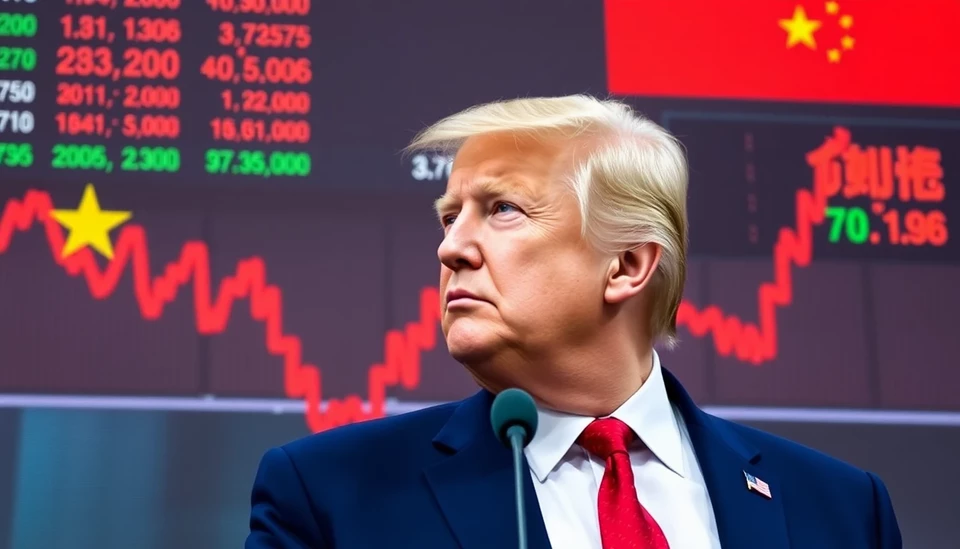
In a significant turn of events, Chinese stocks traded in Hong Kong experienced a considerable decline following the announcement of new tariffs imposed by the United States. This development has sent shockwaves through the financial markets, igniting fears of escalating trade tensions between the world's two largest economies.
On April 3, 2025, the Hong Kong stock market opened on a negative note, with major indices reflecting widespread pessimism among investors. The Hang Seng Index dropped sharply, influenced heavily by technology and financial sector stocks, which are known to be some of the most sensitive to international trade relations.
The newly implemented tariffs, which target a range of Chinese goods, are expected to increase costs for many businesses and consumers alike. Experts predict that this could lead to a decrease in the competitiveness of Chinese exports, ultimately affecting the country’s economic growth trajectory. The US administration’s decision to impose these tariffs has been attributed to ongoing tensions surrounding trade policies, intellectual property rights, and allegations regarding unfair trade practices.
Market analysts are expressing concerns that the continuation of such tariffs could further strain the already fragile economic relationship between China and the US. Investor sentiment appears to be swayed by the uncertainty this brings to the market, leading to a sell-off of shares, particularly in sectors dependent on trade.
As stock prices dropped throughout the trading day, many investors were seen seeking safer assets, reflecting a flight to quality amidst growing fears of a resume in hostilities between the two nations. The ongoing decline already signals the potential for a broader economic impact as these tariffs remain in place, with speculation about future moves from both governments circulating among market participants.
In response, analysts are closely monitoring the situation, urging investors to be cautious. They advise watching for any potential countermeasures from China, which may retaliate against the US tariffs, further escalating the trade conflict. Such actions could lead to a complex web of tariffs and counter-tariffs that could have far-reaching consequences globally.
This latest development is part of a broader narrative of rising protectionism that has characterized US-China relations in recent years. As both nations navigate these tumultuous waters, businesses and investors alike must prepare for a landscape that could remain volatile as new policies emerge and reactions unfold.
With the stock market's response signaling market jitters and the potential for significant economic repercussions, stakeholders are keenly aware that the ramifications may extend beyond financial markets into real-world economic consequences affecting businesses and consumers alike.
As the situation develops, it remains critical to observe the interplay of governmental policies and market reactions, as they will likely shape the future economic landscape not only in China and the US but around the globe as well.
For now, investors brace themselves for uncertainty, keeping an eye on further developments and potential responses from both governments. The course of this trade relationship could very well dictate not only the performance of Chinese stocks but also the stability of the global economy in the months to come.
#ChineseStocks #HongKongMarket #USTariffs #TradeTensions #InvestingNews #FinancialMarkets #Economy
Author: Laura Mitchell

